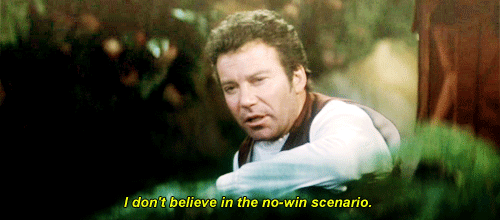Is a problem with emulating a lot of popular fiction using many ttRPGs that the main characters in the fiction typically have massive plot armor and most bad guys are mooks and go down easily - but the folks playing the game might not like having that be too obvious?
What about movies, comics, TV shows, and novels let's us get past that? What lets me ignore that Marshall Dillon will certainly live to be in the next episode of Gunsmoke, or that the entire 4077 won't be wiped out before the next episode of MASH. Does it need other stakes? Does it need to give enough other plot to to distract me? Does having a big character go down fairly early help (lots in GoT, once in a while in Black Company, Boromir in LotR, most people in the Silmarillion)? If main character death isn't a thing in the fiction, what makes the combat interesting? Does easy raise dead in D&D map to how unseriously super hero death in the comics is?
For IRL heroes, is it just that we're doing things in reverse. They're heroes we're reading about because we already know how it turned out? So, what makes us watch a story about a war hero where we know how it ends? Can one even have a historical emulation game where it is guaranteed to end with success in a similar manner to the original, or is there no game there?
What about movies, comics, TV shows, and novels let's us get past that? What lets me ignore that Marshall Dillon will certainly live to be in the next episode of Gunsmoke, or that the entire 4077 won't be wiped out before the next episode of MASH. Does it need other stakes? Does it need to give enough other plot to to distract me? Does having a big character go down fairly early help (lots in GoT, once in a while in Black Company, Boromir in LotR, most people in the Silmarillion)? If main character death isn't a thing in the fiction, what makes the combat interesting? Does easy raise dead in D&D map to how unseriously super hero death in the comics is?
For IRL heroes, is it just that we're doing things in reverse. They're heroes we're reading about because we already know how it turned out? So, what makes us watch a story about a war hero where we know how it ends? Can one even have a historical emulation game where it is guaranteed to end with success in a similar manner to the original, or is there no game there?
Last edited:

